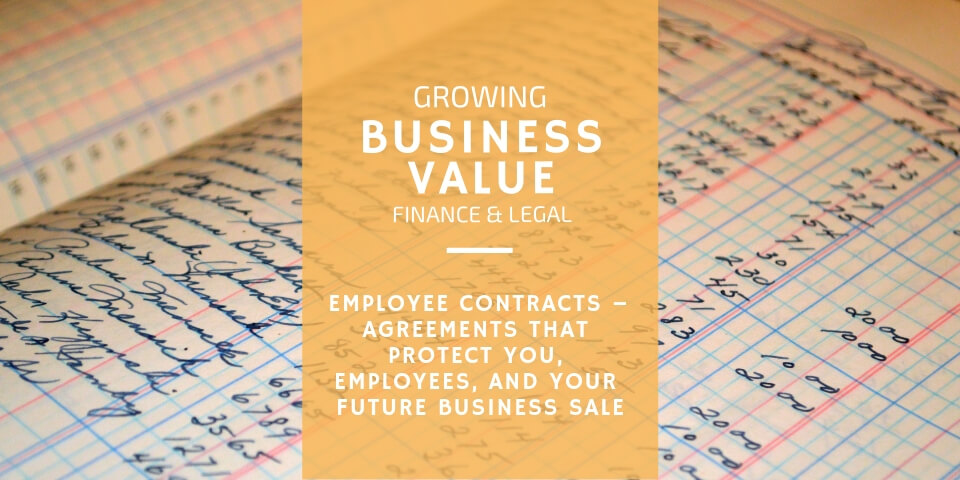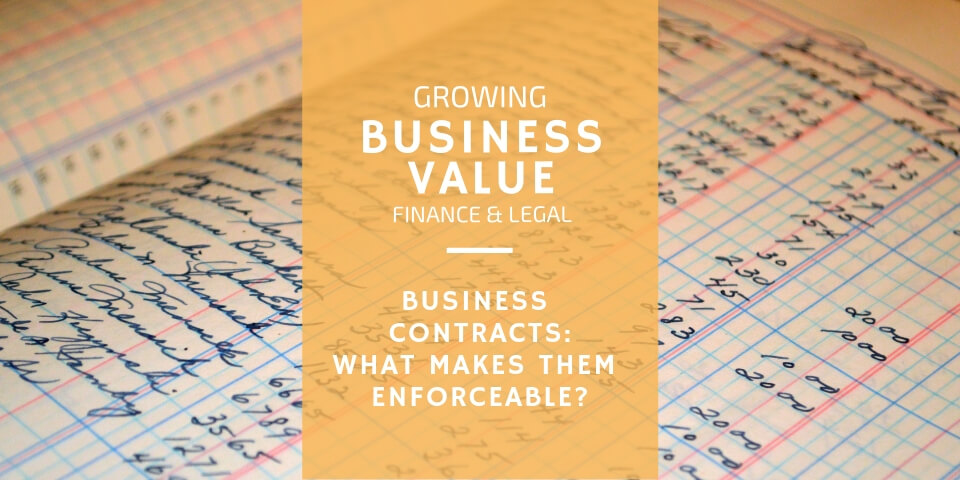
Employee Contracts – Everything You Need in These Essential Agreements
April 5, 2019
How to Protect Your Business’s Intellectual Property
April 12, 2019Business Contracts 101 – What Makes Them Valid & Enforceable?

Since I’ve been talking about how to protect your business in the last few blogs, it’s time to mention contracts – the most essential protective measures you can put in place in your business. Specifically, I want to talk about what makes a contract enforceable. Every day, you enter into some type of contract. Whether you’re making an online purchase or buying a hamburger, you are essentially agreeing to a contract. Contracts exist everywhere! And when implemented properly, contracts can protect your secrets, your reputation, your property, your equipment, and more.
Podcast Time Index For “Contracts: The Basics”
- 00:27 – Contracts: The Basics
- 01:08 – Do You really need to know about Contracts?
- 02:35 – The 19 Contracts in Business
- 07:46 – The 6 Required Elements of an Enforceable Contract
- 11:05 – Why it Matters
- 12:29 – Wrap Up
Contracts 101: The 6 Required Elements of Enforceable Contracts
Before I talk about the types of contracts that protect your business, let’s talk about the elements of good contracts. Contracts don’t just exist when you make a purchase or sell an item. They exist to expedite, enforce, and ameliorate any transaction between people. Each of these elements are what makes a contract enforceable.
- First, there is an offer in every contract. Whether it’s an offer to purchase goods or services, to provide goods and services, to hire someone, to protect someone or the like, there is an offer in every contract.
- Next, there must be an acceptance of the offer to make it a binding contract.
- Then, there is consideration of the offer. In other words, what are the terms and the conditions of the offer? Must the buyer pay immediately or within 30 days? Will the seller accept cash, credit, or check? Will the employees work 5 days a week or 4 days a week? Can vendors ship stock immediately or over a period of time?
- Within each contract, you will also have mutuality of obligation or binding obligations between the parties. Maybe a buyer agrees to make payment for goods or services or a seller agrees to provide goods or services. Perhaps employees agree to work so many hours a week or to keep company trade secrets to themselves.
- Beyond fulfilling obligations to each other, parties in a contract must possess competency and capacity. In other words, are both parties of legal age to enter into contracts, and do they possess the mental and/or financial capacity to abide by the contracts?
- Finally, for a contract to be fully enforceable, it must be written. My personal attorney always tells me, “If it’s not written down, it didn’t happen.” If you want to protect your business interests, then have written contracts available for customers, vendors, suppliers, and you to sign. Don’t be lazy. Just minutes of work writing out contracts can prevent years of legal headaches.
15 Common Contracts You Will Deal within Business
Now that you know how contracts work, let me give you a list of 15 common contracts that exist within the business world.
- Employment Agreements – These contracts include details about payment terms, job descriptions, the hiring process, and the firing process.
- Employee Handbooks – Often combined with employment agreements, the employee handbook outlines all of your business’s employee policies and procedures. It reviews your expectations for your employees’ conduct, attendance, absences, leave, etc.
- Non-Compete Agreements – These contracts prevent your employees from becoming your competition if they leave the company.
- Non-Solicit Agreements – Similar to the non-compete agreements, the non-solicit contracts prevent your employees from taking your customers, vendors, or other employees if they leave the company.
- Confidentiality Agreements – Also known as non-disclosure agreements, these contracts require your employees, vendors, and subcontractors to keep your business’s secrets “secret.”
- Intellectual Property Agreements – If subcontractors or employees create, invent, or write for your company, you need to have intellectual property agreements in place that stipulate who owns the rights to anything created, invented, or written for the company.
- Website Disclosures – If you maintain a website, you need to disclose any conflicts of interest you may have or any compensation you are receiving from affiliates on your website.
- Letters of Intent – When you plan to purchase equipment or purchase a business, you will declare your intent to purchase through this contract.
- Purchase Agreements – Upon purchase of the equipment or the business, you will then sign a purchase agreement that stipulates what is included in the sale.
- Lease Agreements – Similarly, if you rent equipment or building space for your business, you will sign agreements with vendors that stipulate the terms and conditions of your agreement.
- Service Contracts – Oftentimes, if you lease equipment, you will automatically be enrolled in a service plan that requires you or the rental company to maintain the piece of equipment. However, if you are purchasing equipment outright, you can usually purchase a maintenance plan from them.
- Vendor Agreements – Then, if you purchase in bulk or purchase often from certain vendors, you can usually enter into agreements with them for deals or discounts on inventory or supplies.
- Independent Contracts – When you work with subcontractors, you need to have agreements with them in place similar to employment agreements. Stipulate payment rates, payment terms, job descriptions, job expectations, etc.
- Releases of Liability – Also known as a Hold Harmless document, these contracts protect employers from harm and damages should accidents occur in the workplace.
- Customer Agreements – Entered into when a customer sends a purchase order for items or when a customer agrees to a company’s estimate for services, these contracts protect both customers and business owners from fraud or negligence.
RELATED CONTENT: visit the entire Business Growth series of articles
Why Contracts Matter to Business Owners
Each of the contracts I listed above can create safety barriers around business owners. If you have all of your agreements documented, you can protect yourself from litigation or during litigation. Furthermore, you can prevent customers, lenders, vendors, suppliers, and employees from taking advantage of you. The more protections you have around your business, the more valuable your business becomes to potential buyers and investors. Essentially, by creating and enforcing contracts, you can build a best-in-class risk management department.



